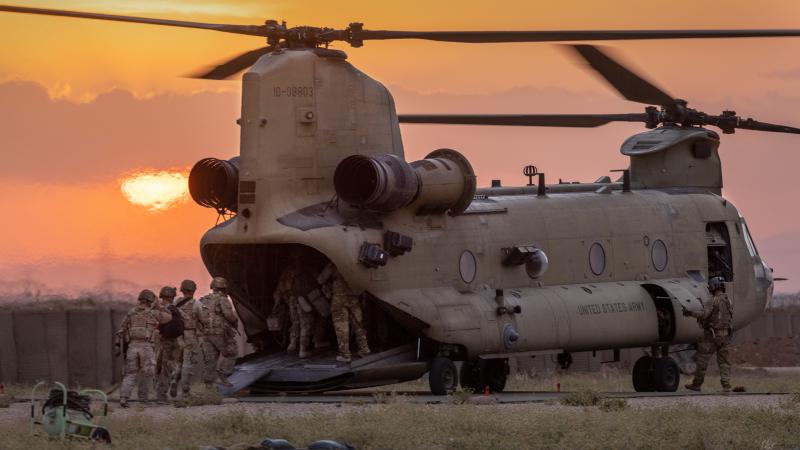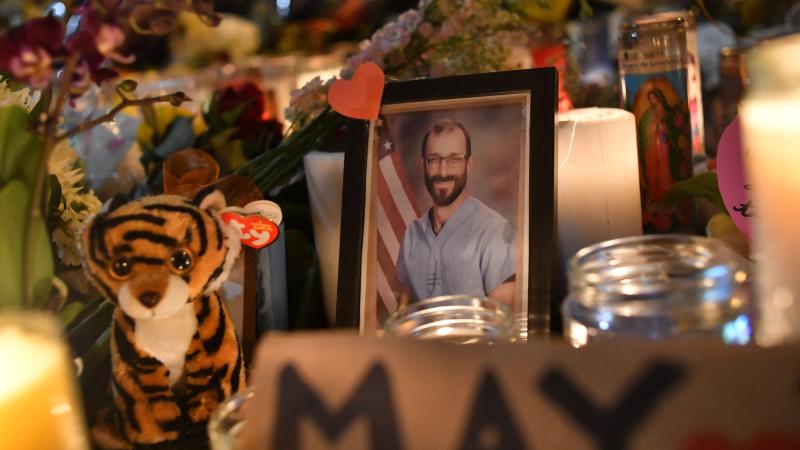Illegal immigrants encamped under border bridge in Texas swell to more than 14,000
More en route, as DHS claims that thousands have already been deported.
More than 14,000 people have congregated illegally underneath the Del Rio-Ciudad Acuna International Bridge on the Texas side of the southern border after having waded across the Rio Grande River from Mexico.
"Blue check-mark Libs demanding Biden have full open borders," Texas Republican Sen. Ted Cruz tweeted, with a photo of a man crossing the river on crutches. "They see nothing wrong with 10,500 illegal immigrants massing under the Del Rio bridge, and 1000s more coming every day. This is not 'enlightened.' It's inhumane and barbaric."
With the situation deteriorating as more people arrived this week, the Department of Homeland Security (DHS) announced on Saturday that within 24-48 hours, U.S. Customs and Border Protection was adding 400 agents and officers to deal with now roughly 14,000 people, mostly from Haiti, who have massed under the bridge. DHS temporarily closed the Del Rio Port of Entry, and traffic was rerouted to Eagle Pass, roughly one hour away.
DHS says it is coordinating with Immigration and Customs Enforcement and the U.S. Coast Guard to transport migrants to processing locations, including 2,000 already reportedly removed so far. DHS says the plan is for them to be "swiftly taken into custody, processed, and removed from the United States consistent with our laws and policy."
But observers outside of the entry to a border fence east of the port of entry, where media trucks are congregated and residents are taking pictures, have counted only 4 to 5 CBP buses leaving the area, with each holding roughly 50 people or less.
Many people have been observed walking back across the river to Acuna to get supplies and bring them back to their makeshift tents in Texas, in addition to the constant stream of people wading across from morning to night.
Many of the people camped under the bridge built makeshift tents using cane sticks and sheets. They wove together plant leaves to provide shade from the sun. Clothes are strewn along the top of the fence or on bushes or the ground.
"I am absolutely stunned by what I'm witnessing right now," Bill Melugin, national correspondent for Fox News, said on Saturday. "We are on a boat in the Rio Grande near the Del Rio international bridge and we are watching as masses of hundreds of migrants walk across the river from Mexico and stream into the US illegally."
Further up the embankment at an entrance through a border fence was a steady flow of Texas Department of Public Safety vehicles descending into the area Saturday afternoon and evening, building up DPS presence. Officers positioned themselves in their vehicles to build a perimeter between the crowd and Texas Port of Entry gate entrance. Their cars also line a section east of the bridge on the embankment to provide security and act as physical deterrent.
DPS also erected a barbed wire fence along the Texas side of the Rio Grande River as a further deterrent.
While DHS says it "will secure additional transportation to accelerate the pace and increase the capacity of removal flights to Haiti and other destinations in the hemisphere within the next 72 hours," residents and observers seem skeptical. The numbers under the bridge have only increased over the last few days, not decreased.
Del Rio Mayor Bruno Lozano said earlier this week that another 20,000 people were reportedly making their way on buses to Ciudad Acuna, Mexico, across the river from Del Rio.
"I'm deeply frustrated," Lozano told reporters at a recent press conference. "The thing that I worry about is a stampede. The thing I worry about is terrorism.
This is not secure. This is not defensible. We don't really know who they are."
The majority of people under the bridge are from Haiti, with others coming from Cuba, Venezuela, and Nicaragua. Many are sleeping and congregating next to urine, feces, and garbage, as not all are using the provided port-a-potties.
Many of the Haitians under the bridge had left Haiti several years ago seeking asylum in Brazil or Chile, where they have been working and living ever since. Believing that they could come to the U.S., enter illegally, be processed by Border Patrol, receive federal benefits and live in the U.S., many paid for their flights to Mexico and got on buses to Acuna to wade across the river to Del Rio. It remains unclear who encouraged them to come to the U.S. now. However, dozens of Haitians told Reuters that "messages in WhatsApp groups spread lies about the ease of crossing the border."
DHS says it is working with source and transit countries to accept individuals who previously resided in these countries to repatriate them.
Haitian Prime Minister Ariel Henry posted a message on social media channels late Saturday that "arrangements have already been made" to receive returning Haitians. "I share their suffering and say to them welcome home," Reuters reported.
However, Henry's position appears to be tenuous, as he's been called on to resign over an alleged connection to former President Jovenel Moïse's assassination, the Associated Press reported. With the abrupt firing and resignations of Henry's opponents, and an upcoming election scheduled for November, the country remains in political turmoil.
The White House has also directed relevant U.S. agencies to work with the Haitian government to provide assistance and support to returnees, DHS says, adding it is "conducting regular expulsion and removal flights to Haiti, Mexico, Ecuador, and Northern Triangle countries."
The Biden Administration "has reiterated that our borders are not open, and people should not make the dangerous journey," DHS adds. "Individuals and families are subject to border restrictions, including expulsion."
Entering the U.S. illegally — "irregular migration," in current DHS parlance — "poses a significant threat to the health and welfare of border communities and to the lives of migrants themselves, and should not be attempted," the department warns.
With border security now focused on Del Rio, Border Patrol confirmed to Fox News that 224 miles of the Rio Grande River border is now unpatrolled. Likewise, the presence of DPS on the roads is diminished as more have been directed to Del Rio.















